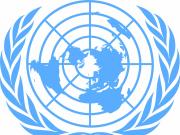Coronavirus is fast spreading and governments are still struggling to contain the spread of the injection but a few European nations are looking to ease relaxations and gradually lift lockdowns. However, experts are saying that a second or third wave could occur if the lockdown is lifted too early and have advised not to make any hasty decisions.
Coronavirus cases have doubled over the past eight days with more than 1,000,000 affected and over 100,000 deaths. There are also a few European countries that are planning to loosen social distancing restrictions. Europe is the hardest hit so far with countries like Italy, Spain and France reporting 18,849, 16,353 and 13,197 deaths, respectively till Saturday.
European countries lifting restrictions

Austria is planning to ease restrictions and from next week if there is no further escalation in coronavirus cases. If it happens, Austria will be the first European country to reopen small restaurants and shops. Also, Denmark after a three-week-long lockdown will be reopening its schools and day care centers from April 15. Norway too will reopen schools and daycare centers a week later.
Czech Republic, in the meantime, has already relaxed some of its social distancing measures on April 9. The east European nation will now start lifting travel restriction from April 14, allowing citizens to cross borders and foreigners to enter the country. People in Czech Republic have will now be allowed to visit bicycle stores and hardware shops and with the relaxation of social distancing measures can also go swimming and play outdoor games.
How are they easing restrictions?

Per a NYT report, Austrian Chancellor Sebastian Kurz has presented a plan to his country's people. Going by the plan, Austria will start opening small shops, hardware centers and gardens on April 14, followed by the restart of businesses by this month end. However, gymnasiums, restaurants and beauty salons that involve close human contact may not open till until mid-May or June.
Denmark too is planning gradual opening its schools and day care centers from April 15. However, it is subject to the number of coronavirus affected patients stabilizing and recovering. International borders and places that involve close contact like restaurants will remain close for now.
In Czech Republic, shops that sell hobby products and building material will open. Also, small groups will be allowed to play outdoor games like sprinting, biking, swimming and tennis. Travel ban will also be lifted but foreigners will be barred from entering Prague and will also have to self quarantine them for two weeks.
Is it a risky move?

Some European countries have started showing flattening coronavirus curves but Europe still continues to be the epicenter of the pandemic. Seven of the top 10 countries affected the most by coronavirus are from Europe. However, Austria, Denmark and Czech Republic, Norway and others contemplating loosening social distancing measures and easing restrictions are comparatively lesser affected by the pandemic in Europe.
That said, experts and the World Health Organization (WHO) have warned against early lifting of lockdowns. In fact, Italy and Spain, two of the hardest hit countries, were contemplating lifting their coronavirus measures after Easter, but ultimately decided to extend them for a few more weeks. The WHO, on Friday, said that although there are some welcome changes in some of the worst-hit countries like Spain, Italy, Germany and France, it is too soon to lift lockdown orders.
"WHO wants to see restrictions lifted as much as anyone. At the same time, lifting restrictions too quickly could lead to a deadly resurgence. The way down can be as dangerous as the way up if not managed properly," WHO's Director General Tedros Adhanom Ghebreyesus had said on Friday. It now needs to be seen, how these countries handle the situation once they relax the restrictions.









